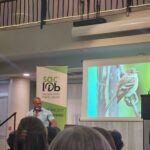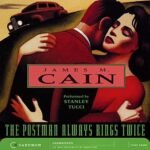I just finished watching Butterfly in the Sky, the documentary about Reading Rainbow, and I haven’t stopped thinking about it since.
Like many, I grew up with Reading Rainbow, but I had forgotten just how groundbreaking and necessary the show was. This wasn’t just a children’s show—it was a movement that transformed how kids engaged with books.
Reading Rainbow didn’t teach kids how to read; it taught them why reading matters. It made books exciting, connected stories to real-world experiences, and encouraged children to see the world through different perspectives.
Watching Butterfly in the Sky reminded me of why I fell in love with books in the first place. But it also made me ask a critical question:
Are we still making sure kids have the chance to fall in love with reading?
Or are we restricting what they’re allowed to read and experience?
The Power of Reading Rainbow: More Than Just a Kids’ Show
One of the things Reading Rainbow did so well was show that books were more than just words on a page—they were gateways to other people’s experiences.
- The show introduced kids to different cultures, ideas, and ways of life.
- It helped them see the world through the eyes of people who weren’t like them.
- It connected books to real-life places, jobs, and historical moments, making stories feel real.
I had completely forgotten how much Reading Rainbow took kids beyond the book. If a book was about a scientist, the show took viewers into a real laboratory. If a book was about another culture, the show immersed kids in that culture.
This was revolutionary.
Even today, many children’s literacy programs focus on reading mechanics rather than fostering a love of reading. But what Reading Rainbow understood was that stories build empathy. Books let us see the world through someone else’s eyes.
That’s why Reading Rainbow is more relevant than ever.
Right now, book bans are at an all-time high. Entire perspectives are being erased from school libraries (American Library Association, 2024). Books that explore race, gender, or historical injustices are being challenged, often by people who haven’t even read them.
That’s the opposite of what Reading Rainbow stood for.
The show was about expanding kids’ worldviews, not limiting them. It trusted kids to learn, to think, and to develop empathy for others.
So why are we afraid of letting them do that now?
LeVar Burton: The Power of Representation and Authenticity
One moment in Butterfly in the Sky really stuck with me:
Before filming season two, producers asked LeVar Burton to shave his facial hair so he’d match his season one appearance.
He refused.
In the documentary, he explains why:
For his entire life, society had been telling Black men how they should look, how they should act, how they should present themselves.
And he wasn’t going to play into that. He was going to be himself.
That hit me hard. Because even today, so many of us feel pressured to edit ourselves to fit into professional spaces.
I see this all the time in my field—career services and education. There’s this expectation of conformity, of fitting a mold. But Reading Rainbow wasn’t about conformity—it was about being yourself and finding your place in the world through books.
And I love that Burton stood firm in that.
Public Broadcasting Under Threat—Then and Now
One of the most powerful and frustrating parts of Butterfly in the Sky was its focus on the 1995 congressional hearings, where Republican lawmakers threatened to defund public broadcasting.
LeVar Burton testified in front of Congress, defending PBS and educational programming. He famously said:
“Public broadcast television is not trying to sell kids anything… just inspiration.”
That fight was almost 30 years ago. And yet, here we are again.
In January 2025, the Trump administration issued Executive Order 14151, which included stripping PBS of DEI-related initiatives (NPR, 2025). As a result, PBS shut down its DEI office and dismissed two executives (AP News, 2025).
Public broadcasting has always been a lifeline for kids who don’t have access to expensive books or educational programs. It’s always had to fight for survival.
Are we really okay with letting it disappear?

Take Action: How You Can Fight for Literacy & Public Broadcasting
If you believe that books should be accessible to all, that diverse stories matter, and that public broadcasting is worth fighting for, here’s how you can help:
1. Fight Against Book Bans
Unite Against Book Bans provides resources, action plans, and ways to contact your local representatives.
2. Support Public Libraries
- Visit and donate books or funds.
- Attend library programs and events.
- Speak out against censorship at local school board and city council meetings.
3. Support Independent Bookstores
- Find a local bookstore via IndieBound.
4. Volunteer for Literacy Programs
- Reading Partners – Provides tutoring for kids in underserved communities.
- First Book – Distributes books and resources to children in need.
5. Stay Informed & Speak Up
- Follow news on book bans and public broadcasting funding.
- Vote for leaders who support literacy and education.
- Use your voice—on social media, in conversations, through writing—to advocate for access to books and diverse stories.
Final Thoughts: Why This Matters
Books shape how we see the world.
Representation makes a difference.
Public broadcasting opens doors for kids who might not have access otherwise.
But none of these things exist without effort. If we don’t fight for them, they disappear.
So let’s fight for them.
Because, as LeVar Burton always said:
“But you don’t have to take my word for it.”
Share this post & take action today.

References
- American Library Association. (2024). Unite Against Book Bans. Retrieved from https://uniteagainstbookbans.org/
- Associated Press. (2025). PBS shutters DEI office following Trump’s executive order. Retrieved from https://apnews.com/article/bb7dafa39af3345a134475f28848cbbf
- NPR. (2025). PBS shutters DEI office following Trump’s executive order. Retrieved from https://www.npr.org/2025/02/11/nx-s1-5293292/pbs-shutters-dei-office-diversity-equity-inclusion-trump-executive-order
- People Magazine. (2023). LeVar Burton reveals “heated” conversations around his appearance on Reading Rainbow. Retrieved from https://people.com/levar-burton-recalls-tense-discussions-reading-rainbow-producers-over-earring-8642137
- C-SPAN. (1995). LeVar Burton’s Testimony on Public Broadcasting Funding. Retrieved from https://www.c-span.org/clip/house-committee/user-clip-levar-burton-testimony/5028275










